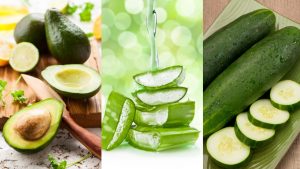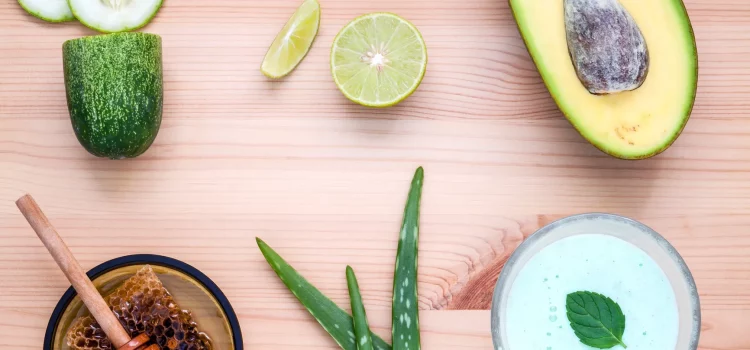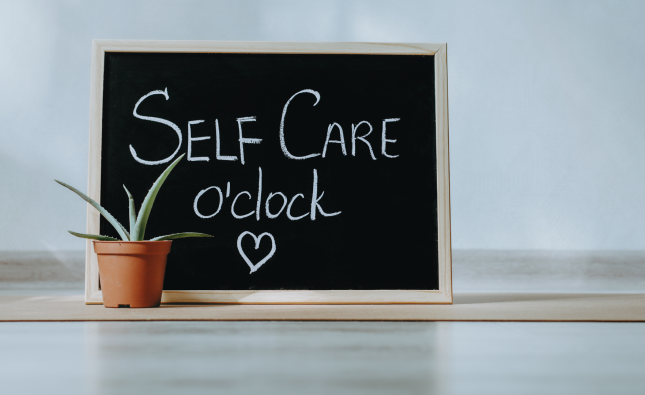
Introduction: Meet Dr. Marisa Garshick
Before we delve into the world of DIY skincare ingredients, allow me to introduce myself. I’m Dr. Marisa Garshick, a board-certified dermatologist passionate about holistic approaches to skincare. With a commitment to healthy and radiant skin, I’ve spent years exploring natural remedies and their effects on our skin. Today, I’m here to share insights that can protect your skin from common DIY ingredient pitfalls.
The Allure of DIY Skincare
We’ve all been there – the allure of concocting your skincare potions at home can be irresistible. The idea of using natural ingredients and saving money while doing so is undoubtedly appealing. However, not all that’s natural is safe for your skin. Let’s uncover some common DIY ingredients that can wreak havoc on your complexion.

The Temptation of DIY Skincare
The world of skincare is ever-evolving, with new trends and products constantly emerging. Amidst this, do-it-yourself (DIY) skincare has gained popularity. The idea of creating your skincare products using natural ingredients found in your kitchen or garden is undeniably appealing. It’s cost-effective, and there’s a certain satisfaction in knowing exactly what goes into your skincare routine.
However, before you reach for that lemon, baking soda, or toothpaste, it’s crucial to understand that not all DIY ingredients are skin-friendly. In fact, some common DIY ingredients can have adverse effects, leading to skin issues you were hoping to avoid. In this article, we’ll explore the risks associated with these ingredients and provide safe alternatives to help you achieve beautiful, healthy skin.
Table: DIY Ingredients to Avoid
Let’s begin by examining the DIY ingredients that might be lurking in your kitchen cabinets or bathroom shelves. While these ingredients have been promoted as miracle workers in the world of skincare, they often come with hidden risks.
| Ingredient | Risk | Safe Alternatives |
|---|---|---|
| Lemon Juice | Skin irritation and photosensitivity | Vitamin C serum |
| Baking Soda | Alters the skin’s pH, causing dryness | Gentle exfoliants |
| Toothpaste | Harsh abrasives, may worsen acne | Acne-specific treatments |
| Sugar Scrubs | Microtears, leading to damage | Gentle exfoliants |
| Apple Cider Vinegar | Burns or irritates the skin | Diluted for specific uses |
Understanding the Risks
Lemon Juice: The Acidic Surprise
Lemon juice is often recommended as a natural remedy for brightening and evening out the skin tone. It’s rich in vitamin C, which is indeed beneficial for the skin. However, using undiluted lemon juice can be problematic. Lemons are highly acidic, and their juice can lead to skin irritation, redness, and a heightened sensitivity to sunlight.
The danger lies in the fact that applying lemon juice to your skin can make it more susceptible to burns, especially if you spend time outdoors without proper sun protection. The result can be the opposite of what you intended: dark spots and damage instead of the desired radiance.
Safe Alternative: Vitamin C Serum
If you’re looking to incorporate vitamin C into your skincare routine, opt for a reputable vitamin C serum. These serums are formulated to deliver the benefits of vitamin C without the harshness of undiluted lemon juice. Vitamin C serums can help brighten your skin, fade dark spots, and protect it from environmental damage.
Baking Soda: The pH Disruptor
Baking soda is another common DIY skincare ingredient, often used in facial scrubs and masks. It’s alkaline in nature and can disrupt the skin’s natural pH balance. Our skin has a slightly acidic pH, which is important for maintaining its protective barrier and preventing moisture loss.
Using baking soda on your skin can disrupt this delicate balance, leading to dryness, irritation, and a compromised skin barrier. Dry, irritated skin is more prone to issues like redness, itching, and breakouts.
Safe Alternative: Gentle Exfoliants
If you’re seeking exfoliation to reveal smoother skin, consider using exfoliating products specifically designed for your skin type. These products contain ingredients like alpha hydroxy acids (AHAs) or beta hydroxy acids (BHAs) that exfoliate the skin gently, without disrupting its pH balance. They help remove dead skin cells, unclog pores, and promote a healthy complexion.
Toothpaste: Not a Blemish Buster
Toothpaste has long been hailed as a quick fix for pimples. The logic behind this DIY remedy is that toothpaste contains ingredients like baking soda and hydrogen peroxide, which can dry out and reduce the size of a pimple. However, the reality is not so simple.
Most toothpaste formulations also contain harsh abrasives and other chemicals that are not intended for use on the delicate skin of your face. When applied to a pimple, toothpaste can indeed dry it out, but it can also cause excessive dryness and irritation to the surrounding skin. This can make the pimple more noticeable and worsen the overall condition of your skin.
Safe Alternative: Acne-Specific Treatments
Instead of relying on toothpaste for acne treatment, consider using products specifically formulated to target blemishes. Over-the-counter or prescription acne treatments contain active ingredients like benzoyl peroxide, salicylic acid, or sulfur, which are effective in treating acne without harming your skin.
Sugar Scrubs: Microtears in Disguise
Sugar scrubs are a popular DIY skincare product for exfoliating the skin. The granulated sugar is believed to remove dead skin cells and reveal a smoother complexion. While it’s true that exfoliation is essential for healthy skin, sugar scrubs can do more harm than good.
The problem with sugar as an exfoliant is that it has sharp, jagged edges that can create microtears in your skin when rubbed on the face. These tiny tears can lead to inflammation, redness, and long-term damage, making your skin more susceptible to environmental stressors.
Safe Alternative: Gentle Exfoliants
For effective and safe exfoliation, consider products that use gentle exfoliating agents like jojoba beads or finely milled rice bran. These alternatives are much softer on the skin, helping to remove dead cells without causing harm. Always remember to be gentle when exfoliating and avoid excessive pressure.
Apple Cider Vinegar: Handle with Care
Apple cider vinegar (ACV) has gained a reputation as a versatile natural remedy, touted for various health benefits, including skincare. It’s often recommended for its antibacterial properties and potential to balance the skin’s pH. While ACV does have some merits, it’s crucial to use it with caution.
Undiluted ACV is highly acidic and can be harsh on the skin. Applying it directly can cause burns, irritation, and redness. It’s essential to dilute it properly if you intend to use it on your skin.
Safe Alternative: Diluted for Specific Uses
If you want to incorporate apple cider vinegar into your skincare routine, always dilute it with water. A common ratio is one part ACV to three parts water. This dilution reduces its acidity and makes it safer for use on the skin.
However, keep in mind that not everyone’s skin responds well to ACV, even when diluted. It’s essential to do a patch test on a small area of your skin before applying it to your face to ensure you don’t have a negative reaction.
Conclusion: Your Skin Deserves the Best
In the quest for healthy, radiant skin, it’s natural to experiment with various skincare products and ingredients. DIY skincare can be fun and cost-effective, but it’s vital to be informed about the potential risks associated with certain ingredients.
Dr. Marisa Garshick, a board-certified dermatologist, advises you to choose safe alternatives and consult with a skincare professional for a personalized skincare plan. Your skin is a precious asset, and it deserves nothing but the best care. With the right knowledge and choices, you can achieve the healthy, glowing complexion you desire while avoiding the pitfalls of harmful DIY ingredients.










